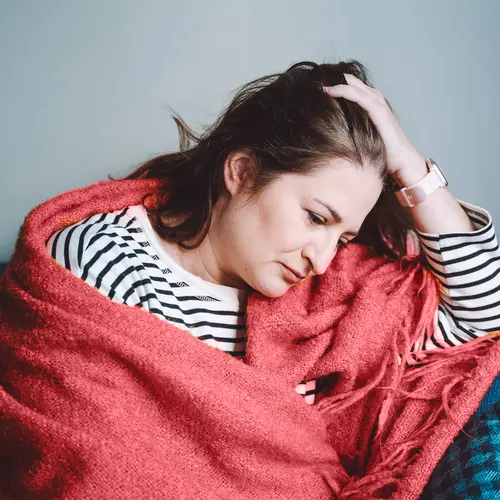Opioids are powerful painkillers. Benzodiazepines (benzos) are strong sedatives that are prescribed for anxiety or sleep problems. Each of these medicines has side effects. Both drugs can be addictive and lead to dependence and an overdose.
Nearly 1 in 3 people who use benzos also take opioids. Mixing them heightens your chances for side effects or overdosing. That’s why both drugs carry a "black box" warning about the dangers of using them together.
There are other, safer ways to manage your combination of symptoms. Let your doctor know if you’re taking benzos and opioids.
What Are Benzos and Opioids?
Benzos are a type of sedative. Doctors prescribe them to treat anxiety, muscle spasms, sleep problems, and seizures. These medicines work by increasing the level of GABA (gamma aminobutyric acid), a chemical that calms your brain.
Some common benzos are:
- Alprazolam (Xanax)
- Clonazepam (Klonopin)
- Diazepam (Valium)
- Lorazepam (Ativan)
- Triazolam (Halcion)
Opioids are strong pain relievers that are derived from the poppy plant. Opioids are also synthetically manufactured. They work by blocking pain signals between your brain and body. Oxycodone is the type of opioid found in the prescription drugs Percocet and OxyContin.
Why Do People Mix Benzos and Opioids?
Doctors write millions of prescriptions for each of these drugs every year. Although the CDC recommends that doctors avoid prescribing opioids and benzos at the same time, one report found that one-third of doctor visits that included a benzo prescription also included an opioid prescription.
Sometimes, people get both drugs when two different doctors prescribe them. Your primary care doctor might prescribe benzos to help you sleep, while your rheumatologist prescribes opioids to manage arthritis pain. Research finds that the risk for overdose increases when more than one doctor prescribes these drugs.
Opioids and benzos also have a high potential for misuse. Some people mix the two drugs on their own to increase their sedative or pain-relieving effects.
The Dangers of Mixing These Medicines
Both opioids and benzos slow your central nervous system. That's why you feel calm and sleepy when you take them. That same effect can cause side effects like dizziness, weakness, and confusion.
Opioids slow your breathing and heart rate. Slow breathing is the main cause of death in people who overdose on these drugs. Taking benzos with opioids slows your breathing even more.
Taking both drugs together increases your risk of overdosing and of dying from an overdose. More than 30% of opioid overdose deaths involve benzos. Even low doses of these two drugs can be risky when they're combined.
Benzos and opioids are addictive, too. Because each drug enhances the effects of the other, taking them together increases the chance of becoming dependent on them.
Signs That You're at Risk
Just taking benzos and opioids together can be risky. The risks increase if you take larger doses than your doctor prescribed. You may be taking too much of these medicines if you have symptoms of an overdose, such as:
- Extreme sleepiness
- Weakness
- Confusion
- Trouble breathing
- Dizziness
- Slurred speech
You could be addicted to these medicines if you:
- Crave these drugs
- Have trouble controlling your drug use
- Go to different doctors to get more of these drugs
- Avoid friends and family or conceal your use
Tell your doctor about these symptoms so that you can get help.
How to Avoid Mixing
The best way to prevent side effects and an overdose is to avoid combining opioids and benzos. Use one drug or the other, or try other treatments to manage your symptoms.
There are many non-opioid pain relief methods, including:
- Prescription and over-the-counter pain relievers like acetaminophen, ibuprofen, and naproxen sodium
- Steroid injections
- Nerve blocks
- Pain-relieving creams such as capsaicin, diclofenac (Voltaren), lidocaine, or menthol
- Nondrug treatments like physical therapy, acupuncture, and massage
Alternatives to benzos for anxiety include:
- Antidepressants
- Cognitive behavioral therapy (CBT)
- Other types of psychotherapy
Other ways to treat insomnia include:
- Cognitive behavioral therapy for insomnia (CBT-I)
- Over-the-counter antihistamines
- Relaxation techniques
- Sleep hygiene practices such getting on a sleep schedule and keeping your bedroom dark and comfortable
- Non-benzodiazepine prescription drugs
Only use benzos and opioids if you really need them and your doctor decides that the benefits outweigh the risks. Even then, use these medicines for the shortest amount of time and lowest dose possible to manage your symptoms. Avoid alcohol because it can intensify the effects of benzos and opioids. Avoid other sedating drugs. And make sure that your doctor checks on you often while you take these medicines.
Share the list of medicines you take with every doctor you see. Ask whether any new medicine they prescribe could interact with a drug you already take.
How to Stop Taking These Drugs Safely
Your brain becomes used to benzos and opioids after you've been taking them for a few weeks. Trying to go off these medicines cold turkey can cause withdrawal symptoms like muscle aches, nausea and vomiting, and a fast heartbeat.
Don't try to stop taking opioids or benzos on your own. See a doctor to help you slowly taper off the medicine. Tapering means that you gradually take less and less of the drug to give your brain time to adjust. You can either taper down at home with your doctor's help or at a drug treatment facility.
Depending on how long you took the drug and the dose, it could take months or years to fully taper off opioids and benzos.

